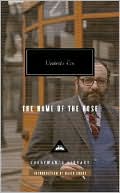Category Books
- Fiction Books & Literature
- Graphic Novels
- Horror
- Mystery & Crime
- Poetry
- Romance Books
- Science Fiction & Fantasy
- Thrillers
- Westerns
- Ages 0-2
- Ages 3-5
- Ages 6-8
- Ages 9-12
- Teens
- Children's Books
- African Americans
- Antiques & Collectibles
- Art, Architecture & Photography
- Bibles & Bible Studies
- Biography
- Business Books
- Christianity
- Computer Books & Technology Books
- Cookbooks, Food & Wine
- Crafts & Hobbies Books
- Education & Teaching
- Engineering
- Entertainment
- Foreign Languages
- Game Books
- Gay & Lesbian
- Health Books, Diet & Fitness Books
- History
- Home & Garden
- Humor Books
- Judaism & Judaica
- Law
- Medical Books
- New Age & Spirituality
- Nonfiction
- Parenting & Family
- Pets
- Philosophy
- Political Books & Current Events Books
- Psychology & Psychotherapy
- Reference
- Religion Books
- Science & Nature
- Self Improvement
- Sex & Relationships
- Social Sciences
- Sports & Adventure
- Study Guides & Test Prep
- Travel
- True Crime
- Weddings
- Women's Studies
The Name of the Rose »

Authors: Umberto Eco, William Weaver (Translator), David Lodge
ISBN-13: 9780307264893, ISBN-10: 0307264890
Format: Hardcover
Publisher: Knopf Doubleday Publishing Group
Date Published: September 2006
Edition: (Non-applicable)
Author Biography: Umberto Eco
Few cultural critics and novelists carry the scholarly heft of Umberto Eco, who was a noted historian and semiotician before he brought these sensibilites to bear on major novels such as The Name of the Rose and Foucault's Pendulum. Whether he is deconstructing modern wax museums or spinning a 13th-century tale, he is always clever, stately and profound.
Book Synopsis
(Book Jacket Status: Jacketed)
A spectacular best seller and now a classic, The Name of the Rose catapulted Umberto Eco, an Italian professor of semiotics turned novelist, to international prominence. An erudite murder mystery set in a fourteenth-century monastery, it is not only a gripping story but also a brilliant exploration of medieval philosophy, history, theology, and logic.
In 1327, Brother William of Baskerville is sent to investigate a wealthy Italian abbey whose monks are suspected of heresy. When his mission is overshadowed by seven bizarre deaths patterned on the book of Revelation, Brother William turns detective, following the trail of a conspiracy that brings him face-to-face with the abbey’s labyrinthine secrets, the subversive effects of laughter, and the medieval Inquisition. Caught in a power struggle between the emperor he serves and the pope who rules the Church, Brother William comes to see that what is at stake is larger than any mere political dispute–that his investigation is being blocked by those who fear imagination, curiosity, and the power of ideas.
The Name of the Rose offers the reader not only an ingeniously constructed mystery—complete with secret symbols and coded manuscripts—but also an unparalleled portrait of the medieval world on the brink of profound transformation.
Library Journal
Eco, an Italian philosopher and best-selling novelist, is a great polymathic fabulist in the tradition of Swift, Voltaire, Joyce, and Borges. The Name of the Rose, which sold 50 million copies worldwide, is an experimental medieval whodunit set in a monastic library. In 1327, Brother William of Baskerville arrives to investigate heresy among the monks in an Italian abbey; a series of bizarre murders overshadows the mission. Within the mystery is a tale of books, librarians, patrons, censorship, and the search for truth in a period of tension between the Papacy and the Holy Roman Empire. The book became a hit despite some obscure passages and allusions. This deftly abridged version, ably performed by Theodore Bikel, retains the genius of the original but is far more accessible. Foucault's Pendulum, Eco's second novel, is a bit irritating. The plot consists of three Milan editors who concoct a series on the occult for an unscrupulous publishing house that Eco ridicules mercilessly. The work details medieval phenomena including the Knights Templar, an ancient order with a scheme to dominate the world. Unfortunately, few listeners will make sense of this failed thriller. The Island of the Day Before is an ingenious tale that begins with a shipwreck in 1643. Roberta della Griva survives and boards another ship only to find himself trapped. Flashbacks give us Renaissance battles, the French court, spies, intriguing love affairs, and the attempt to solve the problem of longitude. It's a world of metaphors and paradoxes created by an entertaining scholar. Tim Curry, who also narrates Foucault's Pendulum, provides a spirited narration. Ultimately, libraries should avoid Foucault's Pendulum, but educated patrons will form an eager audience for both The Name of the Rose and The Island of the Day Before.-James Dudley, Copiague, N.Y.
Table of Contents
Subjects
 Mystery & Crime Classics
Mystery & Crime ClassicsFiction Books & Literature
 Fiction Subjects
Fiction Subjects  Character Types - Fiction
Character Types - FictionFiction Books & Literature
 Fiction Subjects
Fiction Subjects  Occupations - Fiction
Occupations - FictionFiction Books & Literature
 Mystery & Crime
Mystery & Crime  Detective Fiction
Detective FictionFiction Books & Literature
 Mystery & Crime
Mystery & Crime  Other Mystery Categories
Other Mystery CategoriesMystery & Crime
 Detective Fiction
Detective Fiction  Detective Fiction - Religious Sleuths
Detective Fiction - Religious SleuthsMystery & Crime
 Other Mystery Categories
Other Mystery Categories  Historical Mysteries
Historical MysteriesMystery & Crime
 Other Mystery Categories
Other Mystery Categories  Mystery & Crime Classics
Mystery & Crime ClassicsNonfiction
 History
History  Historical Fiction
Historical Fiction
